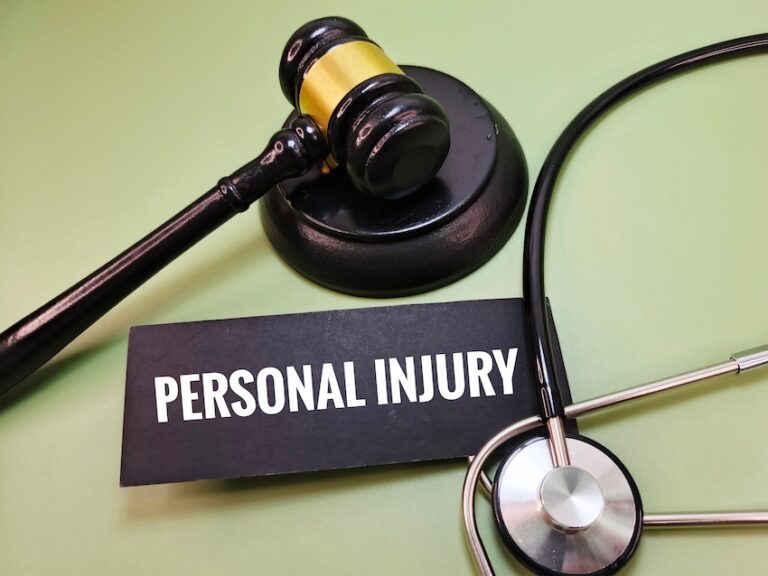At Ross Moore Law, we focus on helping injured people get the justice and compensation they deserve. We built our firm to give clients personal attention, honest advice, and strong representation against insurance companies. Whether you’ve been hurt in a car accident, slip and fall, or any other serious incident, our team is here to guide you through the process and fight for the best possible outcome.
If you’ve been injured in an accident in Georgia, one of the first questions you may ask is, “How long does a personal injury case take to close?” The truth is, every personal injury case is different. Some claims settle in a few months, while others take years. The timeline depends on factors like the severity of your injuries, how long medical treatment takes, and whether the insurance company fights your claim.
In this blog, we break down how long a personal injury case can take to close in Georgia, what factors affect the timeline, and why working with an experienced Atlanta personal injury attorney can help you secure a fair settlement as efficiently as possible.
The Personal Injury Case Timeline: Step-by-Step
Understanding how long a personal injury case takes to close starts with knowing each step. Below is a clear breakdown of the typical personal injury case timeline in Georgia.
Step 1: Get Medical Treatment and Reach Maximum Medical Improvement (MMI)
After an accident, you should seek prompt medical attention. Medical records and medical bills are key evidence in a personal injury claim.
Your personal injury attorney will usually wait until you reach maximum medical improvement (MMI) before starting settlement negotiations. This helps ensure you claim full medical expenses and lost wages without rushing to settle.
Step 2: Investigate the Accident and Collect Evidence
Your lawyer will gather police reports, medical records, witness statements, and accident scene photos. They will also identify the at fault party and check available insurance coverage.
If there are multiple parties or a dispute about who is at fault, this step can take longer. Solid evidence helps reach a fair settlement faster.
Step 3: File a Personal Injury Claim and Handle Insurance Company Communications
Once evidence is ready, your personal injury attorney files a claim with the insurance company. The insurance adjuster will investigate and often make a low first offer.
Most personal injury cases settle at this stage, but negotiations may take time. An experienced personal injury lawyer pushes for a satisfactory settlement agreement and handles all talks with the insurance company.
Step 4: Settlement Negotiations and Demand Package
Your lawyer will send a demand package to the insurance company. This includes your medical expenses, lost wages, and future costs.
The negotiation process starts when the insurer responds. Several rounds of negotiation may be needed to reach a fair settlement. Most personal injury attorneys expect pushback from the insurance company but know how to respond.
Step 5: Filing a Lawsuit if a Settlement Is Not Reached
If the insurance company refuses a fair offer, your lawyer will file a personal injury lawsuit. This begins the litigation process, including the discovery phase and dealing with court schedules.
Filing a lawsuit can extend the timeline, but sometimes it is necessary to get fair compensation. Many personal injury lawsuits settle before trial once the other side sees the case is strong.
Step 6: Trial and Final Resolution
If no settlement happens, the case goes to trial. A trial may be needed for serious injuries where the insurance company denies fair payment.
Trials depend on court schedules and can take time, but they may result in higher compensation. A good personal injury attorney will be ready to present strong evidence to win the case.
Factors That Influence How Long a Personal Injury Case Takes to Close in Georgia
Several key factors affect how long a personal injury case takes to close in Georgia. Each case is different, and understanding these factors can help set realistic expectations for your personal injury claim.
Severity and Complexity of Injuries
Cases involving serious injuries, catastrophic injuries, or traumatic brain injuries often take longer. You need to finish medical treatment and reach maximum medical improvement (MMI) before knowing the full cost of medical expenses and lost wages.
If ongoing medical care is needed, your personal injury attorney may wait to settle until all future costs are clear. This ensures you seek fair compensation for both current and future damages.
Disputed Liability and Multiple Parties
If there is a dispute about who caused the accident, or if multiple parties are involved, the legal process may take longer. The insurance company may refuse to accept fault or may blame others.
In these cases, your personal injury lawyer must gather strong evidence, such as police reports, witness statements, and accident scene photos, to prove liability. More time is needed to resolve legal issues involved when fault is unclear.
Insurance Company Delays and Negotiation Tactics
Insurance companies sometimes delay settlement negotiations to pressure injured people into accepting low offers. An insurance adjuster may take weeks or months to review a demand package or respond to a settlement proposal.
An experienced personal injury attorney knows these tactics and will fight for a satisfactory settlement agreement. However, these delays can add time to the settlement process.
Litigation Process and Court Schedules
If settlement negotiations fail and a personal injury lawsuit is filed, the litigation process takes longer. Both sides must complete the discovery phase, including exchanging documents and taking witness statements.
Court schedules in Georgia can be slow, especially if the case needs a trial. A trial is sometimes needed for fair compensation, but it can extend the personal injury lawsuit timeline.
Ongoing Medical Treatment and Maximum Medical Improvement (MMI)
If you are still receiving medical treatment, it is often best to wait until you reach MMI. Settling too soon may leave you without enough compensation for future medical bills and lost wages.
Your personal injury attorney will advise when the right time is to settle, based on input from medical providers and the full extent of your injuries.
How Long Does a Personal Injury Case Take to Close in Georgia? Average Timelines
Most personal injury cases follow general timelines based on injury severity and case complexity. Below are typical ranges for cases in Georgia.
Simple Personal Injury Cases: 6 Months to 1 Year
Cases with minor injuries and clear fault may settle within 6 months to 1 year. These usually involve short medical treatment and quick settlement negotiations with the insurance company.
Moderate Personal Injury Cases: 1 to 2 Years
Cases with ongoing medical treatment or disputed liability may take 1 to 2 years. Reaching maximum medical improvement (MMI) and resolving insurance claims can add time.
Complex Personal Injury Cases: 2+ Years
Cases involving serious injuries or personal injury lawsuits can take over 2 years. Litigation process, discovery phase, and court schedules often delay resolution.
Why Every Case Timeline Is Different
Each case is unique. Injury severity, medical expenses, and insurance company delays all affect timing. An experienced personal injury attorney helps manage this process for the best outcome.
Consult With an Experienced Atlanta Personal Injury Lawyer ASAP!
If you’ve been injured and are wondering how long your personal injury case might take to settle, our team at Ross Moore Law is here to help. Every case is different, and having an experienced Atlanta personal injury attorney on your side can make a big difference in getting the fair compensation you deserve.
Contact us at 404-445-8122 for a free case consultation today!





